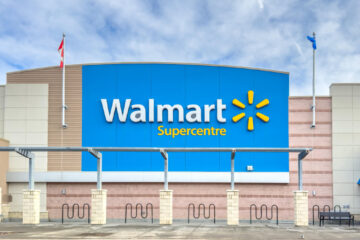Usually, when a retail chain closes, it follows a predictable arc.
The company runs into financial trouble and that causes it to make inventory choices that affect its ability to recover. A store can’t improve its bottom line, in most cases, by having fewer items to sell.
That was clearly part of the sad collapse of both Sears and J.C. Penney. The two brands made an effort to cut their inventory expense, which led to stores having less merchandise to show off.
Related: Forget eggs, new Chapter 7 bankruptcy causes new food problems
It also led to customers not finding what they wanted as the chains both reordered from their vendors less often. That created a situation where customers would see the items they wanted, but only in oddball sizes like extra-small.
Dying stores tend to fall into the vicious circle that’s very hard to get out of.
It takes money to run a store and when cash gets tight, vendors actually make the problem worse. In many cases, if a supplier learns that a client has cash flow issues, they ask to be paid upfront or on shorter terms.
💵💰Don’t miss the move: Subscribe to TheStreet’s free daily newsletter 💰💵
That can take a company that’s teetering on the edge and push it into failure and bankruptcy.
Not all retailers follow that path. Some choose to not push toward bankruptcy, but instead make a dignified decision to close on their own volition.
Competition in the pet space has become intense.
Image source: Shutterstock
The pet space has become very competitive
Most pets eat the same food for most, if not every, meal. They also tend to play with similar toys and, if you have a cat, use the same litter every time.
That makes it very hard for a brick-and-mortar pet supply chain to compete because ordering online with an an automated cadence makes sense for most pet parents. You can get all the basics (and a lot more) from Amazon or Chewy, so that makes a visit to the pet supply store more of a luxury than something that’s required.
Pet food and kitty litter can also be quite heavy so having a delivery person bring it to your door is also an advantage.
Food and Dining stories:
Domino’s Pizza unveils generous deal amid alarming consumer trendSteak ‘n Shake’s beef tallow fries aren’t as healthy as they appearThe Cheesecake Factory makes bittersweet changes to its menu
That may be the reason why Smithland Pet and Garden Centers, a local institution in New England, has chosen to close its doors. The company shared some of its deep history on its website.
“Our 13 locations have become the trusted source for customers seeking lawn, garden and pet supplies, along with competitive pricing and expert in-store advice. Smithland Pet Centers in Massachusetts, formerly known as Dave’s Soda & Pet City, employ the same inventory and staff from its previous incarnation, and generations of customers continue to entrust us with their pets’ health and well-being,” the company shared on its website.
All Smithland locations will close
Now owned by CT Gardens LLC, the chain’s CEO John Atkins told WWLP about the decision to shut down.
“Since 1985, Dave’s Soda and Pet City, myAgway, and Smithland have been more than a place to shop,” Atkins said in a statement. “They’ve been places where pets were pampered, gardens were grown, wild birds were fed, and neighbors became friends.”
All locations will close between now and the end of June.
No going-out-of-business sale date has been set, but the retailer will hold a Customer Appreciation Sale at all Smithland locations from May 6 to May 11, with 10% off all non-sale items. Traditionally, the chain has held a Mother’s Day sale.
Related: After bankruptcy, iconic 80s restaurant chain makes comeback
“We hope you’ll stop by, say goodbye, and take advantage of some wonderful savings during this time. Most importantly, we hope you know how deeply thankful we are to serve you over these many years,” Atkins said.
The chain’s website remains operational, but says that all orders placed online are for in-store pickup only.

